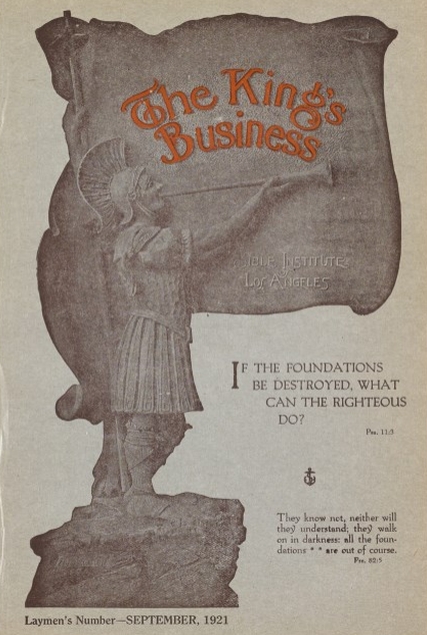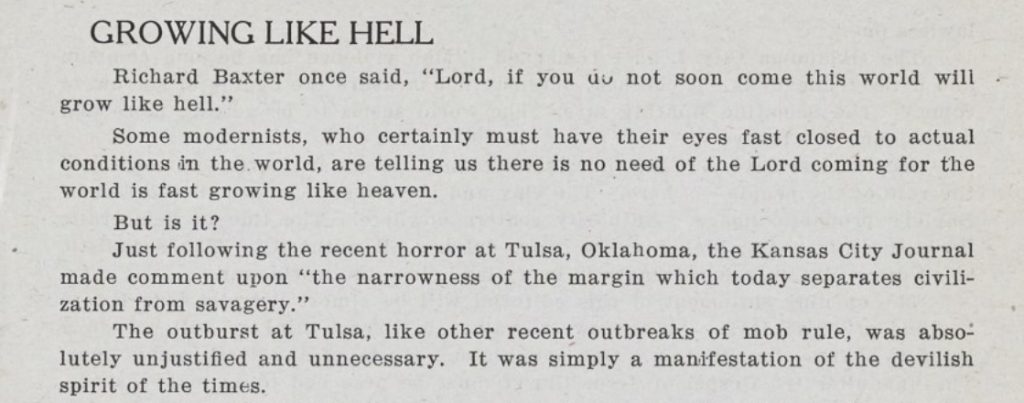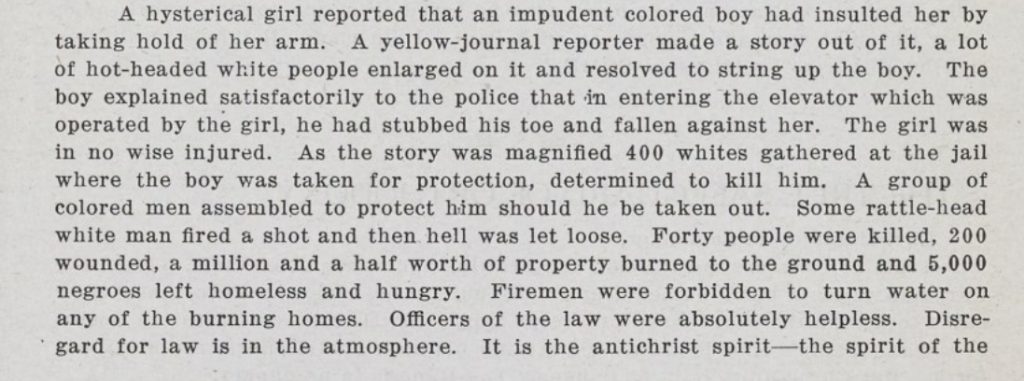
The King’s Business, the monthly magazine of the Bible Institute of Los Angeles, published a strongly worded editorial in its September 1921 issue. With the arresting title, “Growing Like Hell,” managing editor Keith L. Brooks described the violence that had taken place in Tulsa, Oklahoma during the summer of ’21.
Brooks’ editorial is short and sharp, so I’ll just post the whole thing here below for easy reading.



A little bit of analysis and application: Brooks’ main target is theological liberalism, especially of the socially respectable type that was closely identified with the status quo. Churches of that sort were marked by a rosy view of human nature; the general rosiness supported their sense that America was bound to get better as long as good-hearted progressive people ran everything. Against this, Brooks maintained that human nature was thoroughly fallen, human culture was as a result desperately sick, and that humanity’s only hope was the gospel of Jesus Christ.
Looking back from a century later, we might wish Brooks had given a wider account of the layered injustices and historical fear under which Tulsa’s black citizens lived, and been even more specific about the violence of the racist mob. And we might wish he had put in a word about how Christians can make things less hellish as they wait for the return of Christ. Brooks’ premillennial eschatology will always be open to the charge of being “too heavenly minded to be of any earthly good.” But his biblically founded hope in Christ also gave him the prophetic leverage to lift the veil and see certain things for what they are: the racial injustice of America’s cities; the widespread social chaos that inevitably flows out of that systemic wickedness; the moral discrediting of the governing authorities; the opportunistic spirit of lawlessness that exploits every opportunity it finds; and the suffering of Tulsa’s black residents in the aftermath of the attack on their persons and properties.
There’s no need to imitate everything about those who went before us in our institutions. “The clay and the iron are mixed in the feet of Daniel’s prophetic image.” And it’s just an editorial in a Bible magazine. But we could do a lot worse than to see with Brooks’ clarity and speak with his forcefulness about the injustice we see.